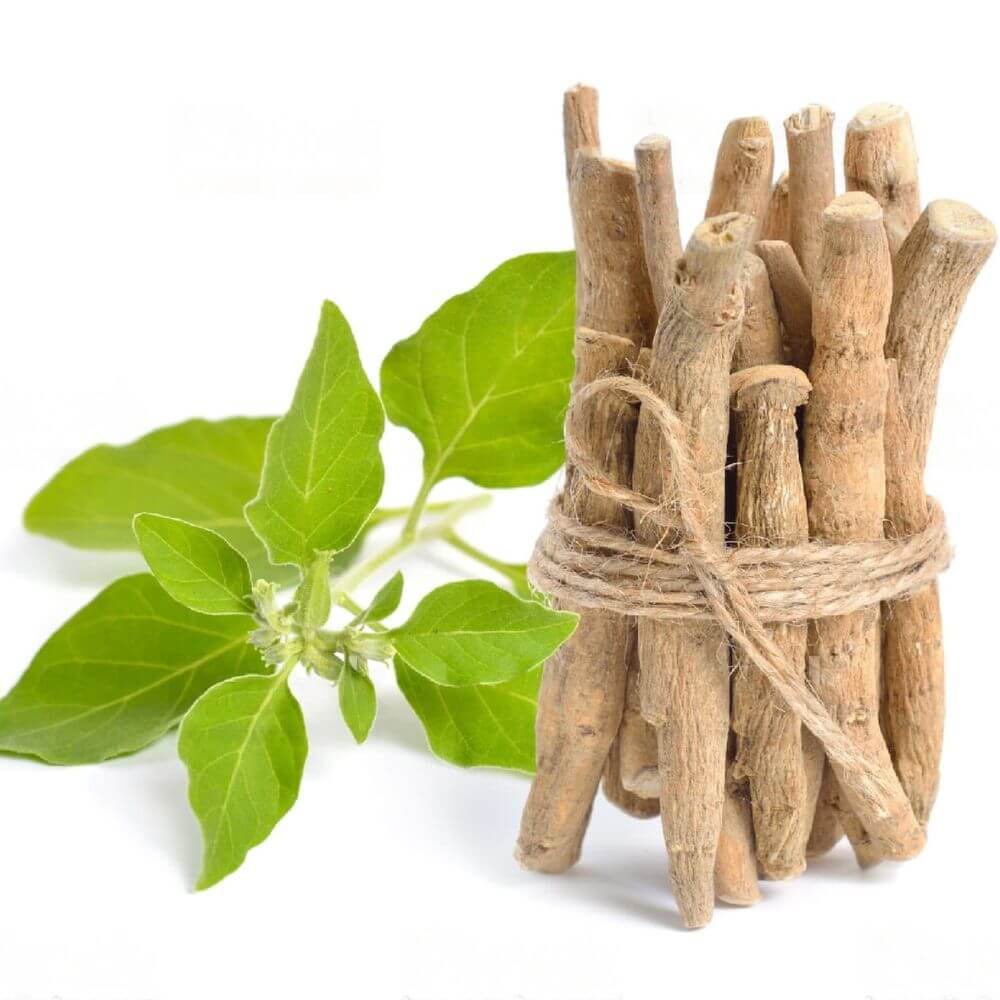Finding Your Zen: Ashwagandha vs Rhodiola - Which Adaptogen Is Right For You?
Ashwagandha vs Rhodiola - Find your inner balance with two adaptogens that can help you manage your daily stress and find your inner peace!
Stress is an unavoidable part of life. Whether it's work-related, personal, or simply a result of living in the modern world, stress can take a toll on our mental and physical health. That's where adaptogens come in - natural herbs that have been used for centuries to help the body adapt to stress and promote overall well-being.
Two of the most popular adaptogens today are Ashwagandha and Rhodiola. In this article, we'll take a closer look at each herb's history, benefits, and which one may be right for you.


What Are Adaptogens?
Adaptogens are a group of herbs and plants that have been used for centuries in traditional medicine systems, such as Ayurveda and Traditional Chinese Medicine. They are known for their ability to help the body adapt to stress, whether it's physical, emotional, or environmental.
Stress is an inevitable part of life, and while it's natural for the body to respond to stress, chronic or prolonged stress can have negative effects on our health. When the body is exposed to stress, it triggers the HPA axis, which releases cortisol and other stress hormones. Over time, this chronic activation of the stress response system can lead to a range of health issues, including fatigue, anxiety, and inflammation.
This is where adaptogens come in. They work by interacting with the HPA axis and modulating the stress response. Rather than simply suppressing the stress response, as many medications do, adaptogens help to balance the system and reduce the negative effects of stress on the body.
Some of the most commonly used adaptogens include ashwagandha, rhodiola, holy basil, and ginseng. Each adaptogen has its own unique set of benefits and properties, but they all share the common ability to support the body during times of stress. Overall, adaptogens can be a great addition to a wellness routine for those looking to support their body's natural stress response system.
However, it's important to work with a healthcare professional to ensure that adaptogens are safe for you to use, especially if you have any pre-existing health conditions or are taking medication. By incorporating adaptogens into a healthy lifestyle routine, you can support your body and mind during times of stress and promote overall wellness.

Ashwagandha:
Ashwagandha, also known as Withania somnifera, is a small shrub native to India and North Africa. Its name translates to "smell of horse," which refers to its distinct odor and the belief that consuming it will give you the strength and vitality of a horse. In Ayurvedic medicine, ashwagandha has been used for centuries to promote physical and mental health. Today, it's widely recognized as a powerful adaptogen with numerous benefits for the body and mind.

Benefits of Ashwagandha:
- Stress relief: Ashwagandha has been shown to reduce cortisol, a hormone released during times of stress. Lower cortisol levels can lead to a calmer, more relaxed state of mind.
- Improved mood: Studies have also suggested that ashwagandha may have a positive effect on mood and anxiety.
- Enhanced cognitive function: Ashwagandha has been shown to improve memory and cognitive function in both healthy individuals and those with cognitive impairments.
- Boosted physical performance: Ashwagandha has been found to increase endurance and strength, making it popular among athletes and fitness enthusiasts.

Rhodiola:
Rhodiola rosea, also known as "golden root," is a perennial herb native to the arctic regions of Europe and Asia. It has been used in traditional medicine for thousands of years to enhance physical and mental performance. Today, it's often used as an adaptogen to help the body cope with stress and promote overall well-being.

Benefits of Rhodiola:
- Stress relief: Rhodiola has been shown to reduce the levels of cortisol and other stress hormones in the body, leading to a more relaxed state of mind.
- Improved mood: Studies have suggested that rhodiola may have a positive effect on mood and depression, potentially due to its ability to regulate serotonin and dopamine levels in the brain.
- Enhanced cognitive function: Rhodiola has been shown to improve cognitive function, memory, and attention, making it a popular supplement among students and professionals.
- Increased energy and endurance: Rhodiola has been found to improve physical performance and reduce fatigue, potentially due to its ability to increase oxygen utilization in the body.
Which Adaptogen is Right for You?
Choosing between ashwagandha and rhodiola depends on a variety of factors, including your individual health needs and preferences. Here are some key considerations to keep in mind:
- Stress levels: Both ashwagandha and rhodiola have been shown to reduce cortisol levels and promote relaxation. If you're looking for an adaptogen specifically for stress relief, either herb may be a good choice.
- Mood: If you're struggling with depression or anxiety, rhodiola may be the better option. It has been shown to have a positive effect on mood and emotional well-being.
- Cognitive function: If you're looking to enhance your memory or cognitive function, ashwagandha may be the better choice. It has been shown to improve memory and cognitive function in both healthy individuals and those with cognitive impairments.
- Physical performance: If you're an athlete or fitness enthusiast looking to boost your endurance and strength, ashwagandha may be the better choice. It has been found to increase physical performance in studies.
It's important to note that both ashwagandha and rhodiola have a wide range of potential benefits, and more research is needed to fully understand their effects on the body. It's always a good idea to consult with a healthcare professional before adding any new supplements to your routine.

Incorporating Adaptogens Into Your Routine
If you're interested in trying ashwagandha or rhodiola, there are a variety of ways to incorporate them into your routine. Both herbs are available in supplement form, including capsules, powders, and tinctures. You can also find them in teas and other natural products.
When it comes to dosing, it's important to follow the instructions on the supplement label and to start with a low dose, gradually increasing as needed. As with any supplement, it's important to listen to your body and to be mindful of any potential side effects.
Incorporating adaptogens into your routine can be a great way to support your body and mind during times of stress. Whether you choose ashwagandha or rhodiola, or another adaptogen entirely, remember to approach your wellness journey with curiosity and kindness.

Final Thoughts
In conclusion, when it comes to choosing between ashwagandha and rhodiola, it's important to consider your individual needs and preferences. Both adaptogens have a unique set of benefits and properties, and what works for one person may not work for another.
At the end of the day, what's most important is finding a way to support your body and mind during times of stress. Whether it's through adaptogens, exercise, meditation, or other healthy habits, taking care of yourself should always be a top priority.
We hope this article has helped provide you with a better understanding of the benefits and differences between ashwagandha and rhodiola, and how they can support your overall well-being.
Remember, there is no one-size-fits-all approach to wellness, and it's important to listen to your body and do what feels right for you. With a little bit of self-care and support, you can find your inner Zen and live your best life!
You Might Also Enjoy Reading This!


Disclaimer
Each of these products has been very carefully reviewed and selected by us at WellnessWishlist. All opinions in this article are our own, and we're proud to share them with you, however, all content is meant only to be informative and should not be taken as medical advice, nor used to diagnose, treat, and or prevent any health conditions. As Amazon associates, we may collect compensation from the affiliate links on this page, through qualifying purchases (that's how we stay in business). We truly hope you enjoy finding the next addition to your WellnessWishlist!


